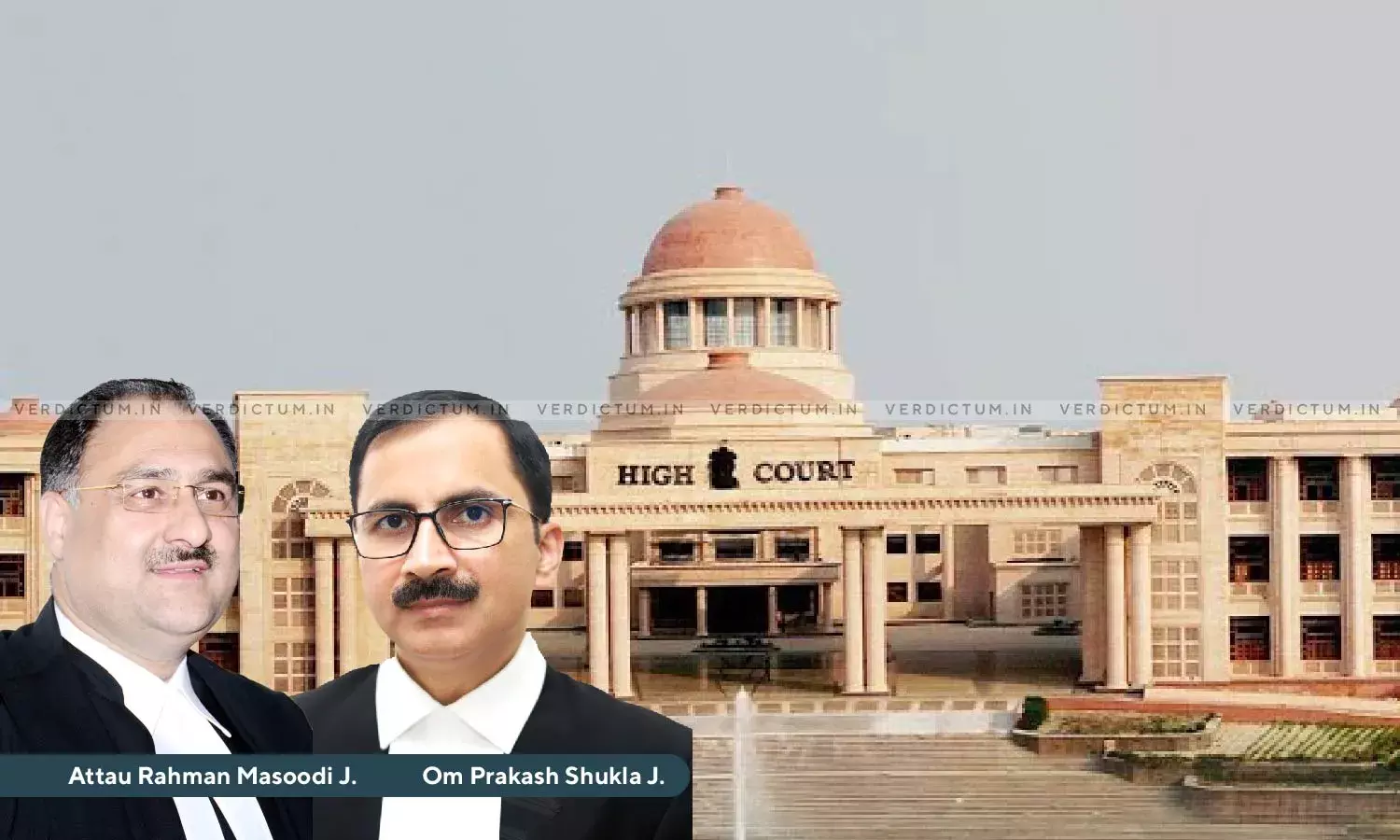Scheduled Caste Community Certificate Obtained Claiming Such Status On Account Of Marriage With SC Person Is Not Sustainable: Allahabad HC

The Allahabad High Court, Lucknow Bench has held that a Scheduled Caste Community Certificate which has been obtained on the ground of marriage with a person belonging to SC is not sustainable in the eyes of law.
The Court was deciding a case wherein the legality and correctness of the judgment passed by the Single Judge in a batch of various petitions was questioned by the appellant in the appeals under Chapter VIII Rule 5 of the Allahabad High Court Rules, 1952.
A Division Bench comprising Justice Attau Rahman Masoodi and Justice Om Prakash Shukla observed, “… it would not be possible to adopt equitable considerations to sustain the Scheduled Caste Community Certificate that had been obtained by the appellant, who admittedly does not belong to Scheduled Caste Community by birth and had claimed such status only on account of her marriage with a person belonging to Scheduled Caste.”
The Bench further referred to the judgment in the case of State of Punjab v. Rafiq Masih (Whitewasher): (2014) 8 SCC 883 whereby the Supreme Court held that the directions of the court under Article 142 of the Constitution, while moulding the relief, that relax the application of law or exempt the case from the rigour of the law in view of the peculiar facts and circumstances do not comprise the ratio decidendi and therefore lose its basic premise of making it a binding precedent.
Amicus Curiae Pushpila Bisht appeared for the appellant while Standing Counsel V.P. Nag, Advocates R.K. Singh Suryavanshi, Prashant Kumar Singh, and Meenakshi Parihar appeared for the respondents.
Factual Background -
An institution ran under the aegis of a society registered under the provisions of the Societies Registration Act, 1860 and was recognised under the provisions of U.P. Intermediate Education Act, 1921 receiving grant-in-aid from the State Government. The appellant was selected by the U.P. Secondary Education Service Selection Board through direct recruitment and was appointed as Lecturer (Urdu) in 1996 in the said institution. Her selection was made under reserved quota i.e., SC based on a caste certificate submitted by her.
Apparently, a dispute regarding seniority arose between the appellant and another person for the purpose of appointment as Principal in the institution. On filing a representation claiming seniority by the appellant, the Regional Joint Director rejected the same and hence, she approached the Single Judge who disposed of her writ petition directing disposal of the representation. As no action was taken and the matter was pending, the appellant filed another writ petition and the matter was before the Division Bench.
The High Court in the above context of the case noted, “… the reliance placed by the learned counsel for the appellant, cannot be of any avail. … we are in full agreement with the view expressed by the learned Single Judge on the issue of appointment of the appellant by means of the impugned judgment/ order. The learned Single Judge has taken great pain in deciding all the issues which were agitated by the parties.”
The Court added that no new ground has been pressed, which would enable it to take a contrary view as has been expressed by the Single Judge.
“… since the appellant obtained appointment upon a false representation to belong to the reserved category and her very appointment to the post of Lecturer (Urdu) stands vitiated, we deem it not to deal with other issues raised by the appellant in the above-captioned special appeals and allow the lis to set at rest without any further action or counter claim”, concluded the Court.
Accordingly, the High Court dismissed the intra Court appeals.
Cause Title- Khushnuda Parveen v. State of U.P. Thru. Secy. Secondary Education Lko. And Ors. (Neutral Citation: 2023:AHC-LKO:58193-DB)


